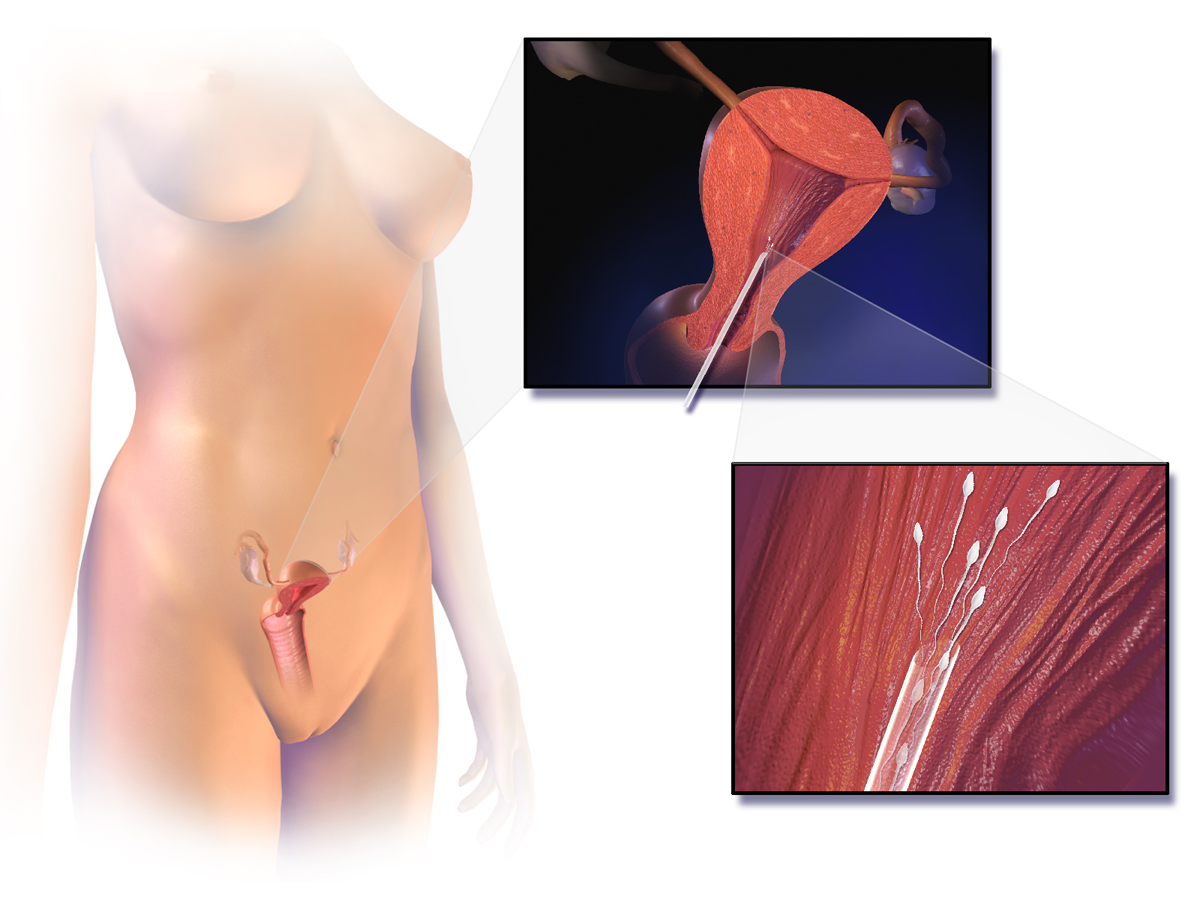
Intrauterine insemination or artificial insemination involves placing sperm directly into the uterus, thus increasing the chances of conception. It is a relatively simple procedure which allows a specialist to put more sperm in proximity to the egg and it is done near the time a female ovulates. A fertility specialist may recommend the procedure when there is a problem with male factor infertility such as a low sperm count. The insemination procedure is simple and could involve the use of fertility medications in order to help the female produce more eggs. A fertility specialist will check a woman's reproductive organs, monitor follicle maturity and perform blood tests and ultrasounds in order to make sure that the procedure will have the best chance of working. A male will provide a sperm sample which will then be washed and tested and put into the female s uterus in the hopes she will conceive.
There are risks and side effects associated with any type of assisted reproductive techniques and IUI is not any different. Intrauterine insemination side effects can include abdominal cramping, infection from bacteria, spotting and the risk of multiple pregnancies due to fertility drugs that may have been used. A woman should never try IUI without the assistance of a licensed medical professional it could prove to be unsuccessful and further prohibit conception from happening. Intrauterine insemination side effects are something to be discussed with a reproductive endocrinologist. While the side effects are generally temporary, it is important to understand that there are risks and benefits with every type of procedure. Make sure to report any bothersome or questionable side effects to your physician in order to prevent any other adverse effect from occurring.

















Your thoughts on this
Loading...